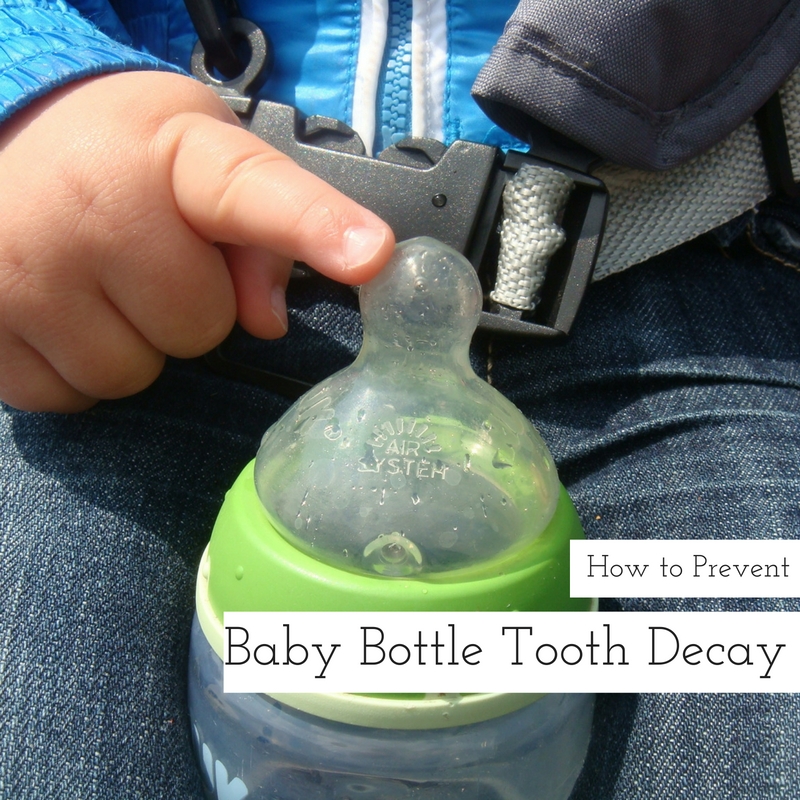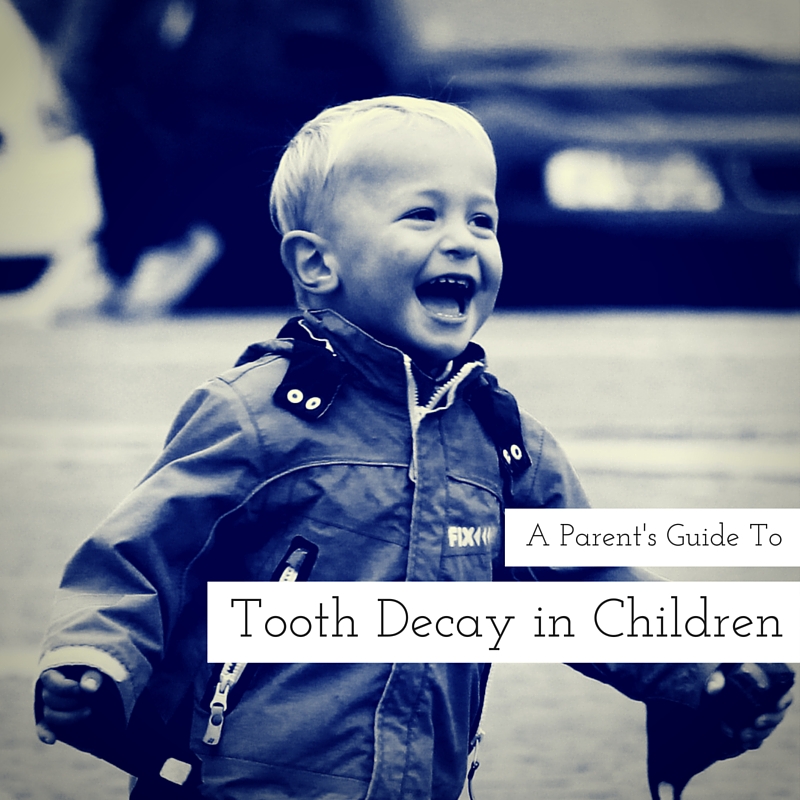How can you help prevent baby bottle tooth decay in your child?

Although baby teeth are not permanent, it is incredibly important that they stay healthy until they fall out to make room for adult teeth. Cavities in toddlers and infants are known as Baby Bottle Tooth Decay. These cavities can prevent children from having strong teeth to chew their food with, and can also cause tooth pain or sensitivity.
What Causes Baby Bottle Tooth Decay
Baby Bottle Tooth Decay is most common in a child’s upper teeth, particularly in the front. However, it is possible in other places as well. These cavities can be caused by a number of things, most common of which is overexposure to sugary drinks. If a baby is usually put down for bed with a bottle in its mouth, or a bottle is commonly used to quiet a fussy baby, they are likely to get cavities in those front upper teeth, hence the name. Cavity-causing bacteria can also be passed from the mother to the baby through bacteria in the mother’s saliva. The bacteria slowly wear away at a baby’s teeth, causing decay in the long run.
Prevention
Thankfully, there are several ways to prevent your baby from having Baby Bottle Tooth Decay. First and foremost, it is vital to avoid passing bacteria to the baby. Do not lick your child’s spoons or put anything in your mouth that will later go into your baby’s mouth. You can also use a washcloth to wipe any baby food or milk from your baby’s gums after feeding. Once their baby teeth start to come in, use a baby toothbrush to gently brush your baby’s teeth, using a dab of fluoride toothpaste. After the age of 3, you can start using slightly more toothpaste, about the size of a pea. Use bottles for milk or formula only. If you put your child to bed with a bottle, it is especially important to avoid filling it with juice, soda, or any other sugary drink.
Conclusion
Baby Bottle Tooth Decay can be painful and prevent children from having strong, healthy teeth. These cavities can be caused by many things, such as sugary drinks and shared saliva. Thankfully, it is completely preventable by brushing your child’s teeth with fluoride toothpaste often, and teaching your child healthy dental habits once they are old enough to brush their teeth by themselves.
